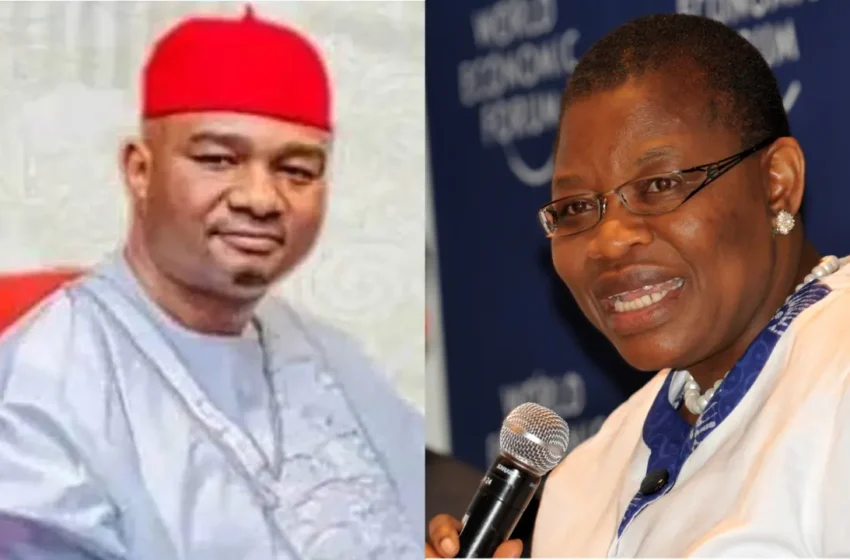Public Officials and Ethical Conduct: What Ezekwesili-Nwebonyi Clash Reveals

Photo-of-Senator-Nwebonyi-and-Oby: Photo Credit: Daily Post
The recent altercation between former Minister of Education Dr. Oby Ezekwesili and Senator Onyekachi Nwebonyi during a Senate hearing has sparked conversations about decorum among Nigeria’s public officials.
The heated exchange, which involved personal insults and an evident lack of restraint, raises concerns about the standards of behaviour expected from leaders who are meant to embody dignity and professionalism.
Is this also a conflict of opposite genders? Are men supporting men while women support women? While the argument raises concern about the ethical standards of public officials, it further reveals a deeper issue of gender inequality in Nigeria’s political space.
A Senate Hearing Gone Awry
The clash occurred during a session of the Senate Committee on Ethics, Privileges, and Public Petitions, convened to address a petition filed by Senator Natasha Akpoti-Uduaghan. She had accused Senate President Godswill Akpabio of sexual harassment and abuse of office.
However, tensions escalated when Senator Nwebonyi insisted that Ezekwesili and her team take an oath before speaking, a demand she resisted. This led to a heated argument, culminating in Ezekwesili telling Nwebonyi “to stop making noise” and Nwebonyi responding by calling her “a fool” and “an insult to womanhood.”
The unfolding drama between Akpabio and Akpoti-Uduaghan, and now between Ezekwesili and Nwebonyi, suggests a broader struggle where women challenging the system face significant resistance, often met with dismissive or hostile responses from their male counterparts. This pattern raises questions about whether Nigerian politics is inherently biased against female voices, limiting their ability to demand accountability without facing personal attacks.
Read Also:
Tinubu’s Emergency Declaration in Rivers: Supporters, Opponents, and National Assembly’s Decision
The Need for Legislative Decorum
Legislators and public officials are expected to maintain composure and professionalism in the discharge of their duties. The National Assembly, as the legislative arm of government, should serve as a model of civil discourse and respect for democratic values. When leaders resort to trading insults, it not only distracts from substantive issues but also diminishes the credibility of the institution they represent.
Ezekwesili’s Critique: Senate Rules vs. Constitutional Principles
Beyond the clash, Ezekwesili’s key argument highlights a deeper issue: the conflict between the Senate’s internal rules and constitutional provisions. She criticised the committee’s decision to dismiss Senator Akpoti-Uduaghan’s petition, arguing that procedural technicalities should not override the fundamental principles of justice.
The Senate had cited procedural violations and the fact that the case was already in court as reasons for rejecting the petition.
Ezekwesili insisted that the legislative body had an obligation to conduct an independent inquiry into the allegations, rather than relying on Senate rules as a shield against scrutiny. This raises critical questions about whether legislative procedures are being used to obstruct accountability rather than uphold it.
Lessons for Nigeria’s Political Leadership
The Ezekwesili-Nwebonyi clash underscores the urgent need for improved ethical standards among Nigeria’s political elite. Public officials are looked up to as role models, and their conduct should reflect the principles of integrity, respect, and accountability.
The incident highlights the need for reforms that ensure legislative proceedings are not just about bureaucratic technicalities but about upholding democratic values. The Senate must review its internal processes to align them with constitutional principles, ensuring that legitimate concerns brought before it is handled with fairness and transparency.
There is need to balance internal legislative procedures with constitutional provisions to foster justice and accountability.
As the debate rages on, Nigerians must continue to demand higher standards from their leaders, recognising that the strength of a democracy is not just in its institutions, but in the character of those who uphold them.

